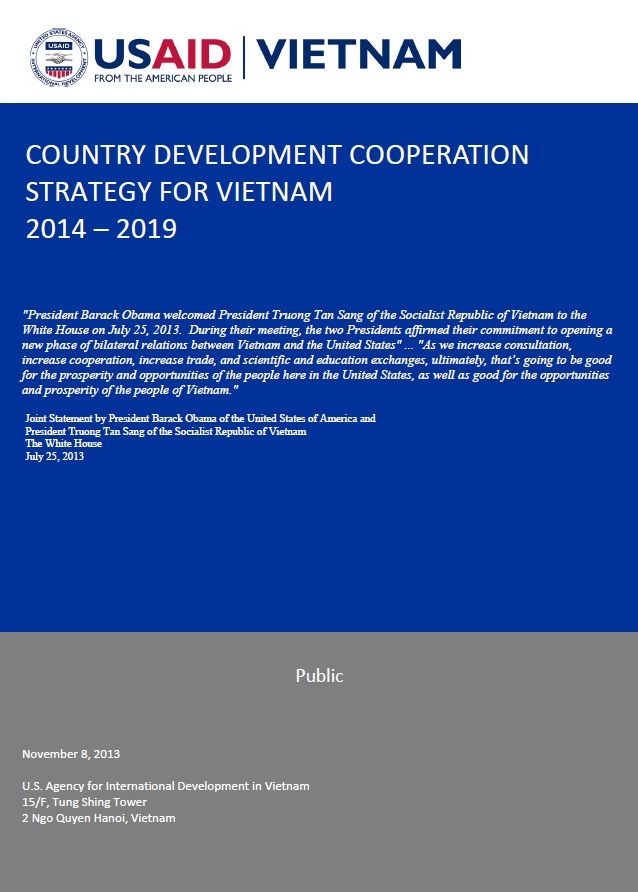USAID's Country Development Cooperation Strategy (CDCS) for Vietnam (2014 - 2019) establishes the foundation for assistance planning, budgeting and implementation for next five years. With this strategy, USAID will strengthen the new U.S.-Vietnam Comprehensive Partnership and address fundamental development challenges in order to support Vietnam’s continued transformation into a responsible, more inclusive partner.
Three objectives will support this goal:
ENHANCED GOVERNANCE FOR BROADER, SUSTAINABLE GROWTH
Building on 12 years of successful partnership on economic reforms and growth assistance, this objective recognizes broader-based, sustainable growth as the best prospect for progress that benefits all Vietnamese people. USAID will focus on the governance constraints to that growth as the principal development problem during this strategy period. USAID has created a program that will play a catalytic role in building capacity for improved policymaking and accountability, emphasizing greater citizen participation and increased transparency as means to ensure the development outcomes that its citizens increasingly expect.
USAID expects to support the Government of Vietnam’s efforts to deepen and better implement reforms for further transformation to a more rule-based, industrialized economy and global integration. USAID assistance will include support in the areas of trade and competitiveness relevant to the vital Trans-Pacific Partnership (TPP) under negotiation, as well as other trade agreements, and will promote enhanced governance at national provincial levels to support private sector development and broader economic participation. Under this objective USAID will also identify innovative partnerships that can drive Vietnam’s development, particularly in the area of higher education.
INCREASED CAPACITY TO PROTECT AND IMPROVE HEALTH AND WELL-BEING
USAID assistance that strengthens capacity in government, civil society, the private sector and within vulnerable populations is critical to the aspiration for greater inclusiveness reflected in our strategy’s overarching goal. USAID’s programs will be focused in areas where we have established momentum or have identified important opportunities, including in international health, climate change, disaster mitigation and vulnerable groups whose social and economic participation are essential to Vietnam’s progress.
USAID will support a strengthened health care system for effective HIV/AIDS prevention, care and treatment services delivered by Government of Vietnam systems and financing. USAID will enhance country systems to address emerging pandemic threats, and strengthen and help translate climate change and green growth-related policies into practice to lower green house gas emissions and build resilience to long-term climate change. USAID will also build on the continuing legacy of assistance to persons with disabilities begun under the Leahy War Victims Fund in 1989. Since then and going forward, our disability programs will support measures to further integrate and address the needs of persons with disabilities, regardless of cause.
ADVANCEMENT OF THE U.S.-VIETNAM PARTNERSHIP BY ADDRESSING LEGACIES
Addressing legacies of the war between the United States and Vietnam has proven an important means to promote relations and understandings between our peoples, and benefit populations impacted by the presence of dioxin and unexploded ordnance (UXO) as environmental health and economic threats. USAID will complete the clean up of dioxin at Danang Airbase; the U.S. Government also has plans to conduct an assessment of dioxin contamination at Bien Hoa Airbase. USAID’s assistance will also enable the government to address other forms of environmental contamination.
For the Vietnamese version of the Country Development Cooperation Strategy (CDCS), visit here.









Comment
Make a general inquiry or suggest an improvement.